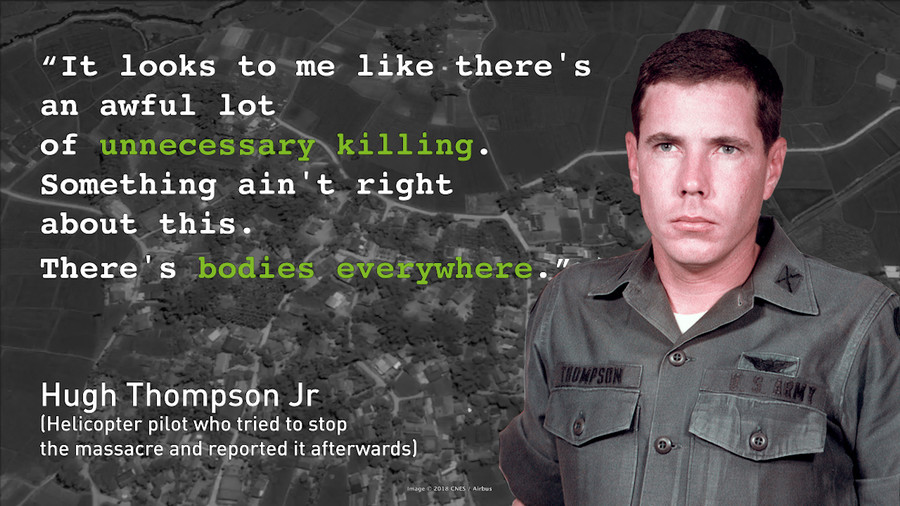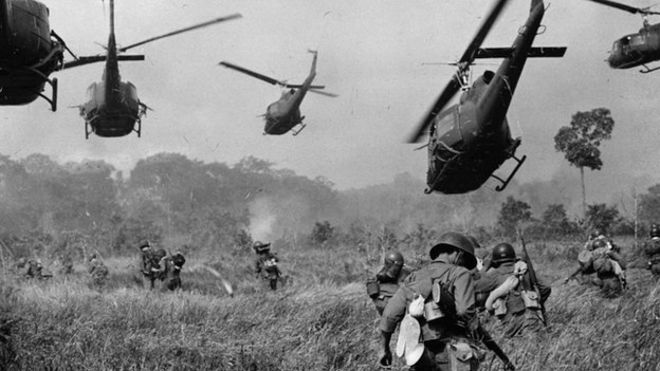Monday, March 26, 2018
Thursday, March 22, 2018
Notícias Recentes
Queridos amigos,
Agora é março e em breve será a Páscoa. O mundo continua em sua estrada mais e mais longe das verdades encontradas na palavra de Deus.
No entanto, nós, como cristãos, somos instados a ser luzes em um mundo escuro. Nós somos instados a ser sal. Em que foi utilizado o sal no passado? Ele foi usado para preservar alimentos e, portanto, era uma mercadoria importante. Os soldados romanos eram parcialmente pagos em sal por seus serviços. Um soldado que não podia desempenhar seus deveres adequadamente não "valia o sal". Nossa palavra "salário" vem da conexão com o sal como pagamento.
Então, como cristãos, como sal, somos encarregados de preservar o bem na sociedade. Nós devemos preservar e defender a verdade enquanto expulsamos a falsidade. Devemos influenciar o mundo, para que ele não apodreça. Mas hoje estamos convencidos de que não é nossa posição tentar influenciar as crenças dos outros. Não é nossa posição se levantar contra aquilo que é podre ou falso. Precisamos ser politicamente corretos e apenas concordar com os podres e tolerá-los. Mas Jesus ordenou o contrário.
Nós também usamos sal para jogar em ruas geladas para ajudar a derreter o gelo. Assim como o sal, Ele nos enviou para ajudar a derreter os corações gelados do incrédulo. Como cristãos, portanto, durante esta época de Páscoa, vamos renovar nosso chamado para ser luz e sal para um mundo agonizante. Defendamos as verdades de nossa fé cristã no amor e na humildade.
No mês passado, pela graça de Deus, a Associação Nova Dimensão conseguiu distribuir alimentos e roupas em um evento em Lisboa para cerca de 500 famílias pobres. Todas as noites de terça-feira foram distribuídas 200 refeições quentes aos sem-abrigo em Lisboa.
No norte, graças ao senhor Manuel e a dona Isabel, as crianças do ASCRA, centro de crianças sob a tutela do Estado, puderam fazer uma refeição inspiradora no Restaurante Fonte de Galo, em Povoa de Varzim. Além disso, 15 famílias receberam sua cesta semanal de alimentos, ajudando a melhorar suas condições de vida. Duas famílias receberam sofás e outra uma geladeira.
Internacionalmente, enviou 4 voluntários para passar um mês nas Filipinas ajudando um projeto de parceria que temos lá.
Estaremos patrocinando um seminário a ser realizado no próximo mês no domingo dia 21 de abril. O ex-missionário e treinador de vida Gloria Cruz compartilhará algumas lições importantes para o nosso benefício espiritual e emocional. Gloria combina sua experiência missionária, seu conhecimento da Palavra de Deus e suas habilidades de Treinador de Vida em um seminário cristão informativo e inspirador. Se você sente que precisa de um impulso espiritual ou emocional ou psicologicamente, as conversas de Gloria podem ser exatamente o que você precisa.
Se você tiver interesse, por favor nos avise. A localização do evento será determinada por interesse, mas atualmente Braga, ou o Porto são as duas opções. Entre em contato comigo pelo TM: 915016534 ou pelo meu e-mail: john_portugal2000@yahoo.com. Obrigado.
Se não te vemos antes, tenha uma feliz Páscoa. Amor, Dennis John
Wednesday, March 21, 2018
The Unlearned Lesson of My Lai
By Conor Friedersdorf, The Atlantic, March 16, 2018
When U.S. Army soldiers ended their massacre of elderly men, women, and children in a South Vietnamese hamlet 50 years ago–on March 16, 1968–perhaps 500 civilians lay dead.
The green troops expected to meet Vietcong forces, but instead found unarmed families. “During the next few hours, the civilians were murdered,” Seymour Hersh later wrote. “Many were rounded up in small groups and shot, others were flung into a drainage ditch at one edge of the hamlet and shot, and many more were shot at random in or near their homes. Some of the younger women and girls were raped and then murdered. After the shootings, the G.I.s systematically burned each home, destroyed the livestock and food, and fouled the area’s drinking supplies.”
 The My Lai massacre still shocks the conscience.
The My Lai massacre still shocks the conscience.
It’s hard to fathom how a group of young American men, most of whom would never have killed anyone but for the Vietnam War, spiraled out of control together, perpetrating atrocities that rival any committed in the annals of human warfare.
And yet, whenever a country’s civilian leaders decide to send young men to fight any war of sustained length, it is almost certain that discipline will break down somewhere, that savagery will take hold sometime, and that shameful evil will be done, as had happened during the Civil War, World War I, World War II, and the Korean War.
A country can minimize the evil perpetrated in its name, by its soldiers, by going to war only as a last resort; maintaining discipline as best as is humanly possible during armed conflict; holding war criminals responsible for their deeds; and treating those who stop or uncover crimes against humanity as heroes rather than villains. The hero of the My Lai massacre was helicopter pilot Hugh Thompson, Jr. Along with the members of his crew, Glenn Andreotta and Lawrence Colburn, he began observing the U.S. troops in Son M? Village from the air, believing them to be attacking enemy forces. It took time for him to realize that the soldiers of Company C were committing mass murder. At that moment, he could easily have just flown away.
 Instead, he landed his helicopter, confronted heavily armed child killers and rapists amid their killing frenzy, and saved the lives of at least 11 civilians. As The New York Times described it decades later in his obituary:
Instead, he landed his helicopter, confronted heavily armed child killers and rapists amid their killing frenzy, and saved the lives of at least 11 civilians. As The New York Times described it decades later in his obituary:
He touched down near a bunker in which a group of about 10 civilians were being menaced by American troops. Using hand signals, Mr. Thompson persuaded the Vietnamese to come out while ordering his gunner and his crew chief to shoot any American soldiers who opened fire on the civilians. None did. Mr. Thompson radioed for a helicopter gunship to evacuate the group, and then his crew chief, Glenn Andreotta, pulled a boy from a nearby irrigation ditch, and their helicopter flew him to safety.
 Upon returning to base he reported what he saw. And that likely saved many more innocents, for commanders ordered a halt to an operation that had been planned to include forays into other nearby hamlets where more killings could have taken place.
Upon returning to base he reported what he saw. And that likely saved many more innocents, for commanders ordered a halt to an operation that had been planned to include forays into other nearby hamlets where more killings could have taken place.
When I reflect on the My Lai massacre, I cannot put myself in the minds of the dozens of men who perpetrated it nor the three who risked their lives to intervene. I don’t know if anyone can fully explain either savagery or heroism in war.

But a country needn’t solve any mystery to know how it ought to respond to mass murder. And that’s why, in my judgment, the U.S. should feel the most shame for the fact that just one man, Lieutenant William Calley, was ever punished for the mass killings. Found guilty of murdering no less than 20 people, he was sentenced to life in prison, but put on house arrest instead after President Nixon intervened. In the end, even he served just three-and-a-half years of house arrest. Then he went free.
He is now 74.
And Hugh Thompson? After news of the My Lai massacre reached the United States, this was his experience:
After it broke, I was not a good guy. I was sure not being invited to Annapolis or West Point or any other university that I’ve been to since, because I was a traitor. I was a communist. I was a sympathizer. I was neither one of those, I didn’t think. I was very confused about why I was being treated this way, because how wrong can it be helping a fellow human? And I’m no pacifist either. You know, I’m not one of these peacenik guys. So I was just very confused, and that went on for about 30 years.
I became invisible. When it first broke, people thought everybody was picking on Lieutenant Calley. Believe me, Lieutenant Calley was very guilty. There is no way to get around it. But we, being Americans, we cheer for the underdog, so that’s what people were thinking. They thought the establishment was picking on this little guy. The turmoil the United States was in during this time was quite significant. We had demonstrations on every campus in the United States except about three, and I guarantee they were right outside your gate, because we had been there too long. We were [the demonstrators said] nothing but a bunch of baby killers, you know, and it was just a bad time for America.
And Congress came after me real hard. A very senior congressman made a public statement that if anybody goes to jail in this My Lai stuff, it will be the helicopter pilot.

He later told 60 Minutes, “I’d received death threats over the phone. Dead animals on your porch, mutilated animals on your porch some mornings when you get up.” He and his crew did not receive the Soldier’s Metal until 1998. He lived to see the Army teach his behavior as a model of good soldiering. He died in 2006.
If the Armed Forces could train its members so that the murder of civilians would never again occur, and so that all soldiers possessed the moral rectitude and courage of Hugh Thompson, it would–and the moral risks inherent in wars of choice would shrink. Unfortunately, no army can totally eliminate war crimes perpetrated by its worst soldiers, nor can any Army simply replicate the best of its men.
Meanwhile, the government’s unwillingness to prosecute torturers, despite its treaty obligations, shows that it sometimes remains willing to tolerate war criminals as it fights its enemies, and that the public is often oblivious to misbehavior by its soldiers.
That’s why, even though the Armed Forces have learned from My Lai, the surest way for the United States to avoid its next crime against humanity is for it to avoid wars of choice. Admittedly, the possibility of war crimes cannot by itself tell us whether it is prudent or imprudent to participate in a given conflict; but the next time that a war is being considered, rather than pretend that no American soldier would ever intentionally rape, maim, or murder, the near certainty that sustained war will include atrocities perpetrated by Americans should always at least weigh against waging it.








